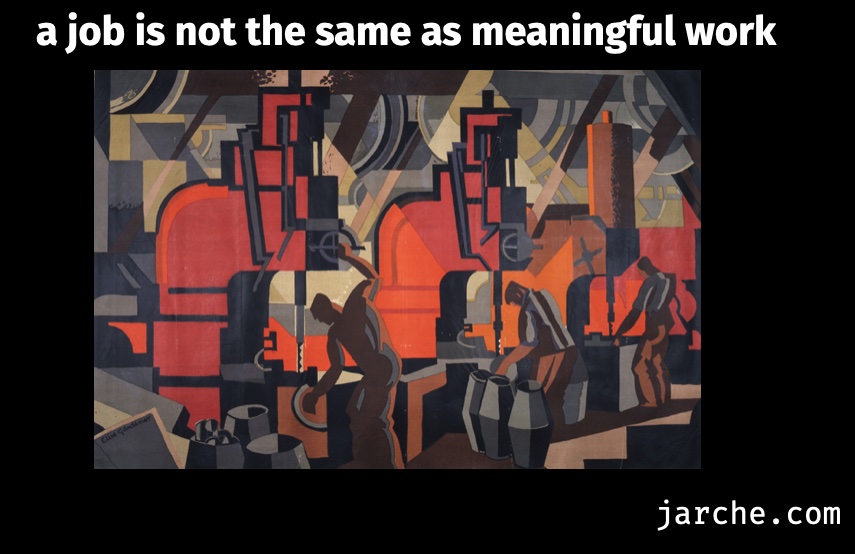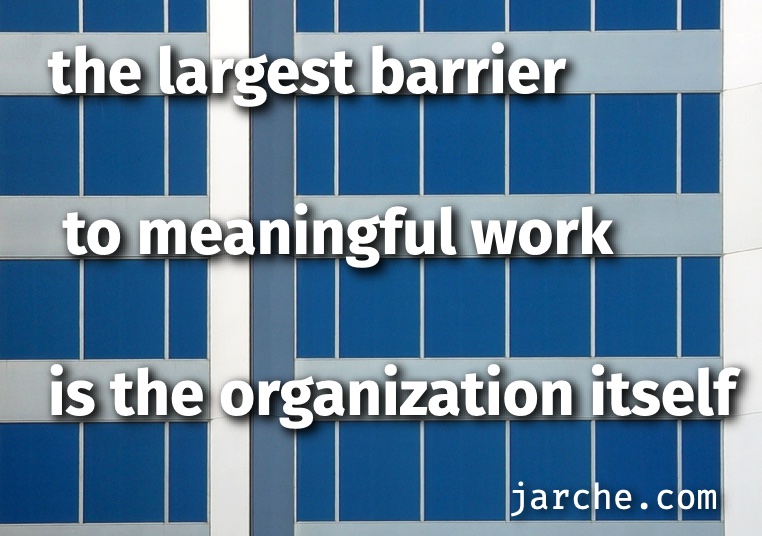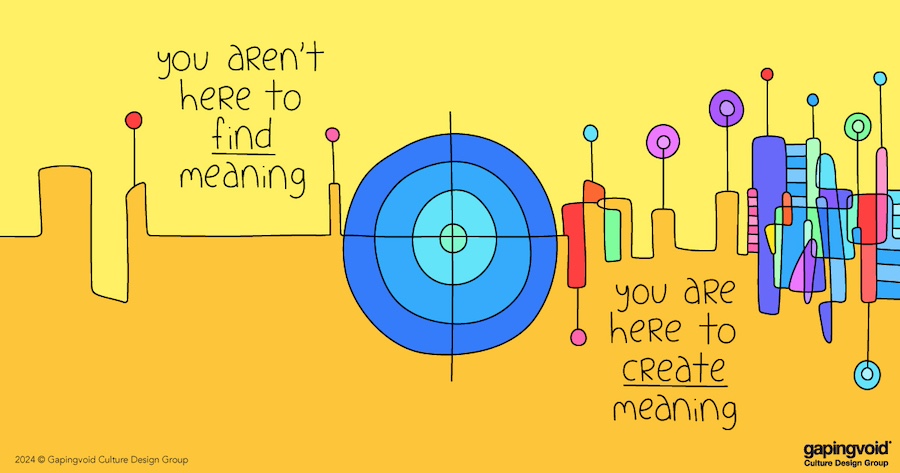“The ignorance of how to use new knowledge stockpiles exponentially.” —Marshall McLuhan
For the past decade I have promoted the idea that a job is not the same as meaningful work. Most jobs are refillable and replaceable. One worker leaves, another one fills the job position. Our work can help to define us, but our jobs should never define us.

I discuss sensemaking in my PKM framework, though meaning-making is much more important and is related to self-determination theory that states there are three universal human drivers — autonomy, competence, and relatedness. We need some control over our lives, we want to be good at something, and we want to feel that we can relate to other people. These three drivers are what make us do what we do. They support meaning-making.
Dave Gurteen says that, “Meaning-making and sense-making are often used synonymously, but they are different — Meaning-making is the process by which we interpret situations or events in the light of our previous knowledge and experience. It is a matter of identity: it is who we understand ourselves to be in relation to the world around us.”
Even workplaces that support sensemaking often ignore meaning-making. Why are we doing this work in the first place? — is a question that is seldom asked. Even more antithetical to the capitalist, number-crunching workplace is that work should be playful. As Albert Einstein stated, “Combinatory play seems to be the essential feature in productive thought.”
Sometimes play requires time away. It often requires reflection, in which agency is born. We require agency, that part of us that makes us human, that allows us to direct ourselves in solid decision, in order to guide our natural playful selves into the whatever work we deem meaningful. —Kourosh Dini, 2022

Instead of making sense of our lives, our world, and our work, we will be auto-tuned for the ‘correct’ perspective. As we get inundated with new knowledge and information regurgitated by large language models and generative pre-trained transformers — time for meaning-making becomes critical.
I will leave the final thought to the folks at Gaping Void — “You aren’t here to find meaning. You are here to create meaning.”

